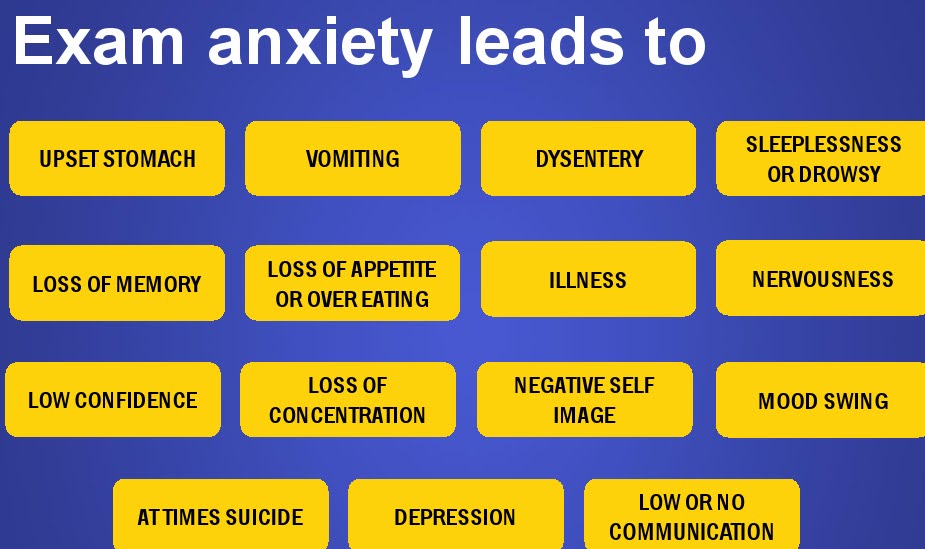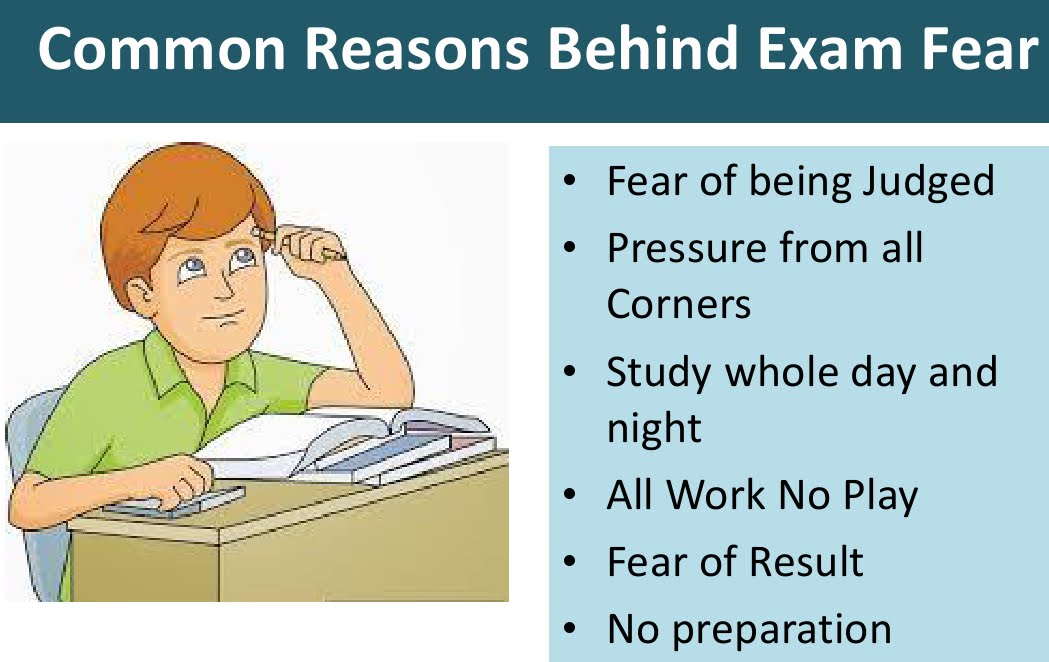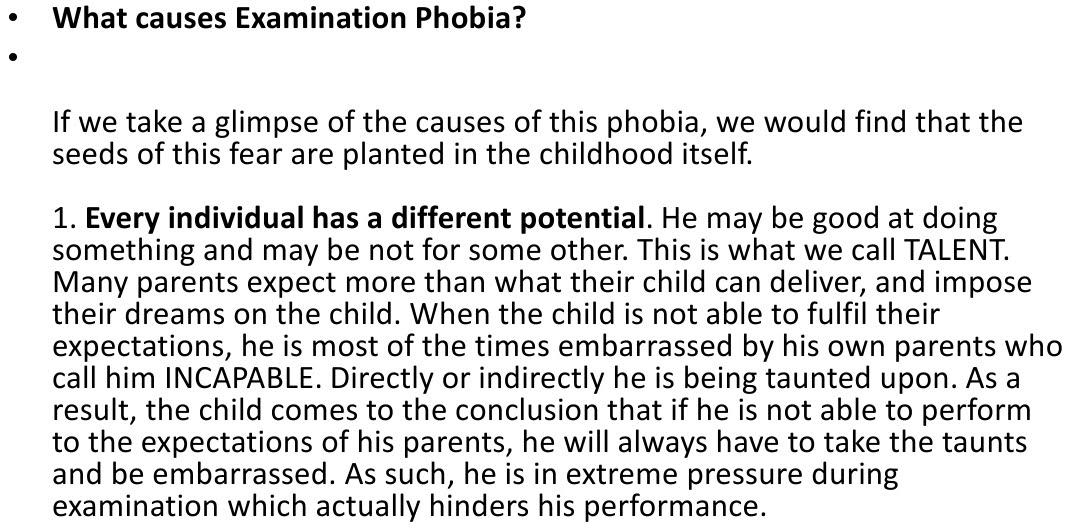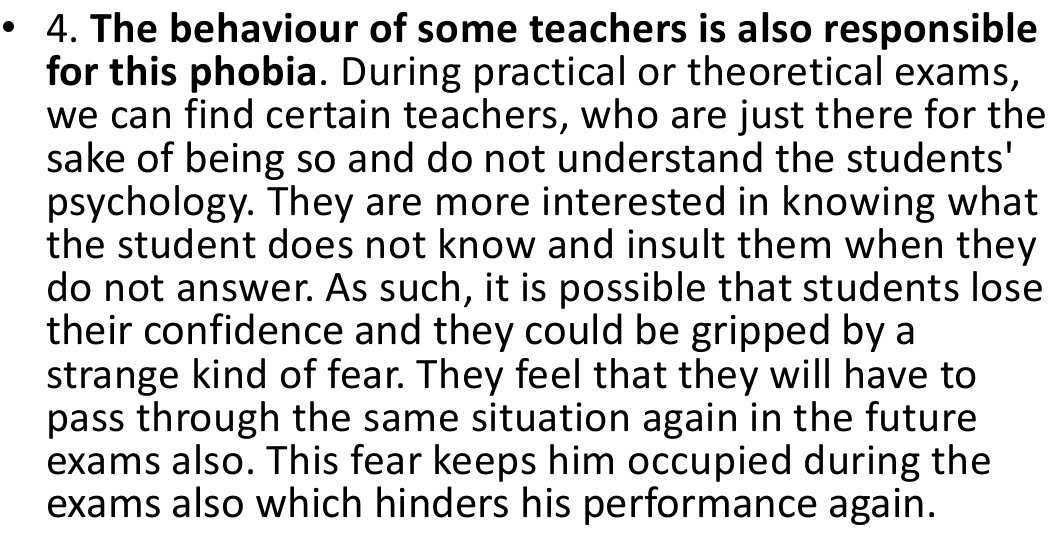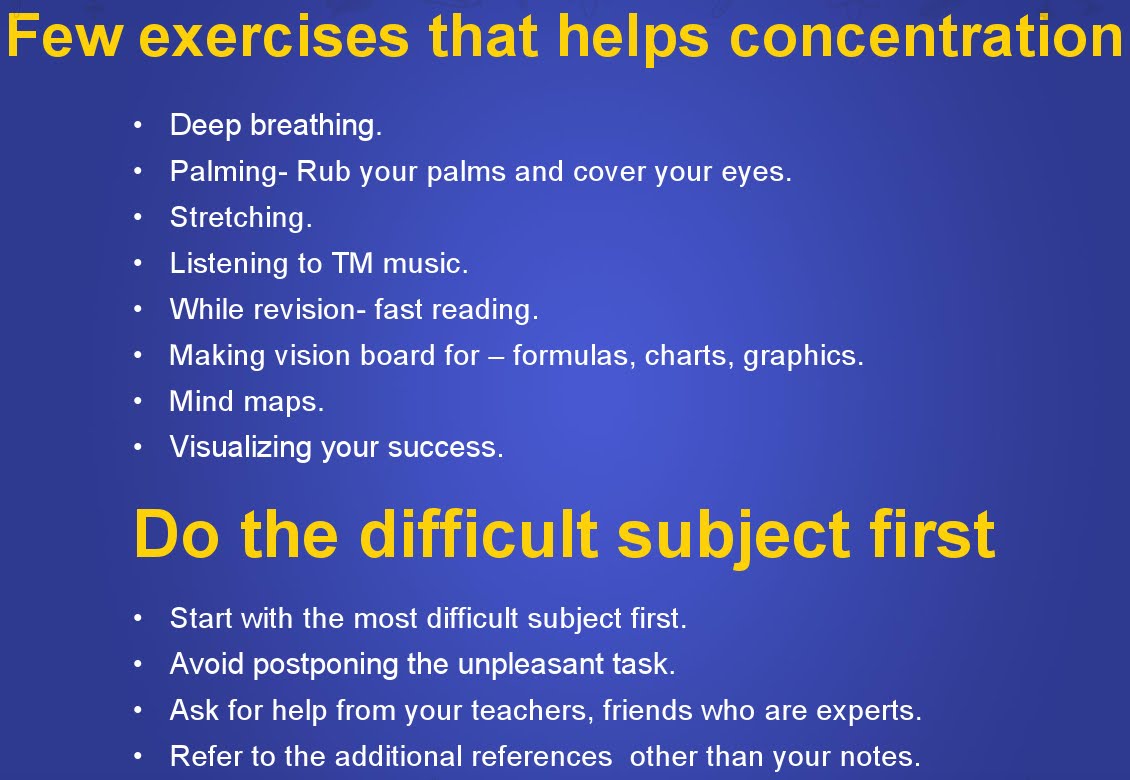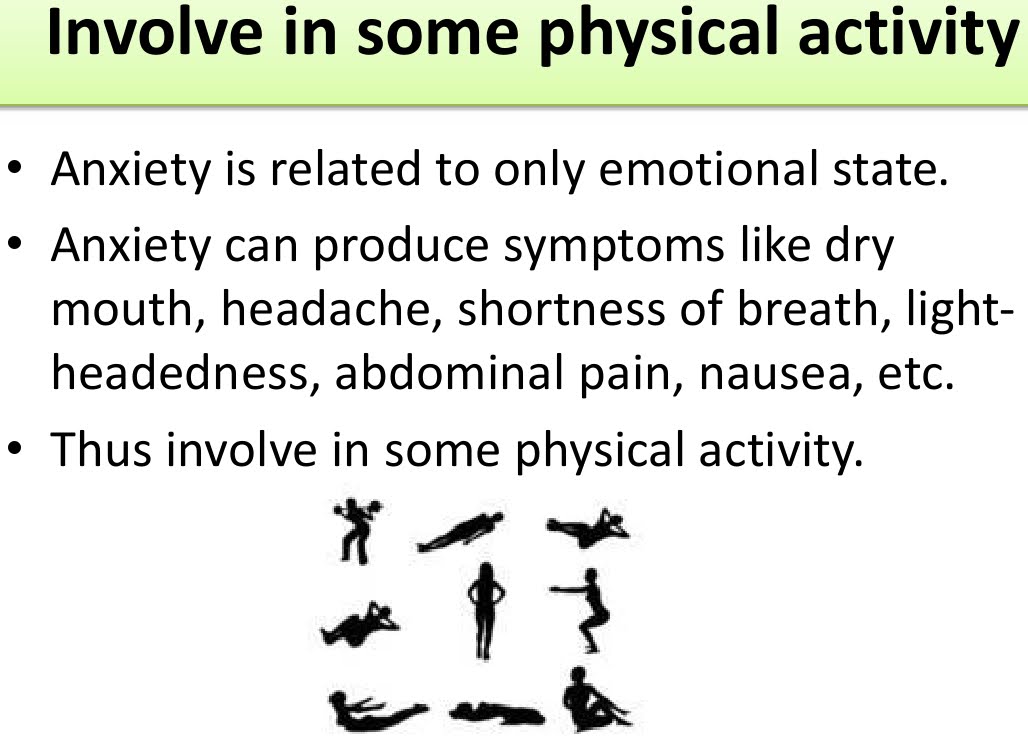Examination Phobia
Examination
Phobia in Students: An Overview
I. Introduction
Definition of examination
phobia
Prevalence of examination
phobia among students
II. Causes of Examination Phobia
Academic pressure
Fear of failure
Unrealistic expectations
Lack of preparation
Exam anxiety and stress
III. Symptoms of Examination Phobia
Physical symptoms
(headaches, fatigue, stomach aches, sweating)
Mental symptoms (anxiety,
depression, irritability, panic attacks)
Behavioral symptoms (avoidance
of exams, skipping classes, absenteeism)
IV. Effects of Examination Phobia on Students
Negative impact on academic
performance
Decreased confidence and
self-esteem
Mental health problems
Difficulty in socializing
and forming relationships
V. Strategies for Overcoming Examination Phobia
Time management and
preparation
Deep breathing and
relaxation techniques
Seeking support from
teachers, friends and family
Positive self-talk and
visualization
Seeking professional help
from a counselor or psychologist
VI. Role of Teachers in Addressing Examination
Phobia
Creating a supportive
classroom environment
Encouraging students to seek
help
Providing stress-management
strategies and techniques
Assessing individual student
needs and tailoring support accordingly
Addressing the root causes
of exam phobia and promoting a positive attitude towards exams
VII. Conclusion
Examination phobia is a
common issue faced by many students
It is important to address
this issue to prevent negative impacts on academic performance and mental
health
Teachers play a crucial role
in providing support and addressing exam phobia in students. With the right
support and strategies, students can overcome their fears and achieve their
full potential.








